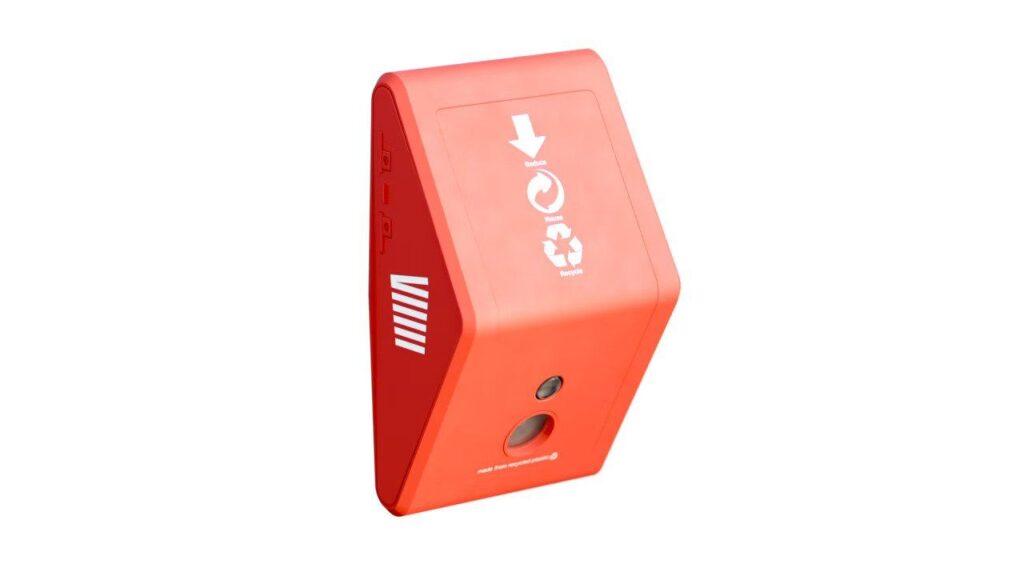Innovative uses of artificial intelligence have had mixed results, but Finnish startup Binit is leveraging AI to address a unique challenge: household waste management. By using large language models (LLMs) for image processing, Binit aims to track and analyze household trash, enhancing recycling efforts.
AI-driven waste sorting isn’t new at the municipal or commercial level, with startups like Greyparrot, TrashBot, and Glacier already in the field. However, Binit’s founder, Borut Grgic, believes that household trash tracking is an untapped opportunity.
“We’re creating the first household waste tracker,” Grgic shared. He compared the device to a sleep tracker, but for monitoring trash disposal habits. Utilizing camera vision technology and neural networks, the device leverages LLMs to identify everyday household waste items.
A Stylish and Functional Kitchen Gadget
Founded during the pandemic, Binit has secured nearly $3 million in angel investment. The startup is developing AI hardware designed to be both functional and aesthetically pleasing in the kitchen. The battery-powered device is intended to be mounted near the trash area, equipped with cameras and sensors to activate when someone approaches, enabling item scanning before disposal.
Initially, Binit attempted to train its own AI model for trash recognition but achieved only 40% accuracy. Integrating with commercial LLMs, particularly OpenAI’s GPT, has boosted accuracy to nearly 98%. Grgic speculates that this success could be due to the extensive training data these models have on common objects.
“The accuracy is incredible,” Grgic noted, adding that the system can even recognize specific brands and determine if a coffee cup has a lining.
Data from scanned trash is uploaded to the cloud for analysis, with users receiving feedback and analytics through an app. Basic analytics will be free, but Binit plans to introduce premium features via subscription. The app provides users with a weekly rubbish score and gamified incentives to reduce waste.
Addressing Waste Habits
Grgic acknowledges that many people are already aware of their waste habits but may not act on this knowledge. He compares the device to a sleep tracker, suggesting that awareness combined with data-driven insights can drive behavioral change.
During US tests, Binit observed a 40% reduction in mixed bin waste as users engaged with the system. This transparency and gamification appear to help alter ingrained habits.
The app will also offer personalized suggestions to help users minimize waste, drawing on LLMs and user location data. For instance, users will receive recommendations for reducing plastic use based on the types of packaging they dispose of.
Binit envisions partnerships with food waste reduction influencers and sees the device as promoting sustainable consumption. Grgic believes the product aligns with a growing movement towards mindful consumption, reuse, and recycling.
“We’re at a cusp,” he suggests, indicating a societal shift towards questioning the necessity of throwaway culture.
Multiple Use Cases and Future Plans
While the device could theoretically be replaced by a smartphone app, Grgic points out that some users prefer a dedicated, hands-free scanner in the kitchen. Binit will also offer a free app-based scanning feature, catering to different user preferences.
Binit has piloted its AI trash scanner in various cities across the US and Europe, including New York, Austin, San Francisco, Oakland, Miami, Paris, Helsinki, Lisbon, and Ljubljana, where Grgic hails from. They aim for a commercial launch in the US this fall, with the AI hardware priced around $199, considered an ideal price for smart home devices.
See also: Paul Graham: Sam Altman Wasn’t Fired From Y Combinator


















